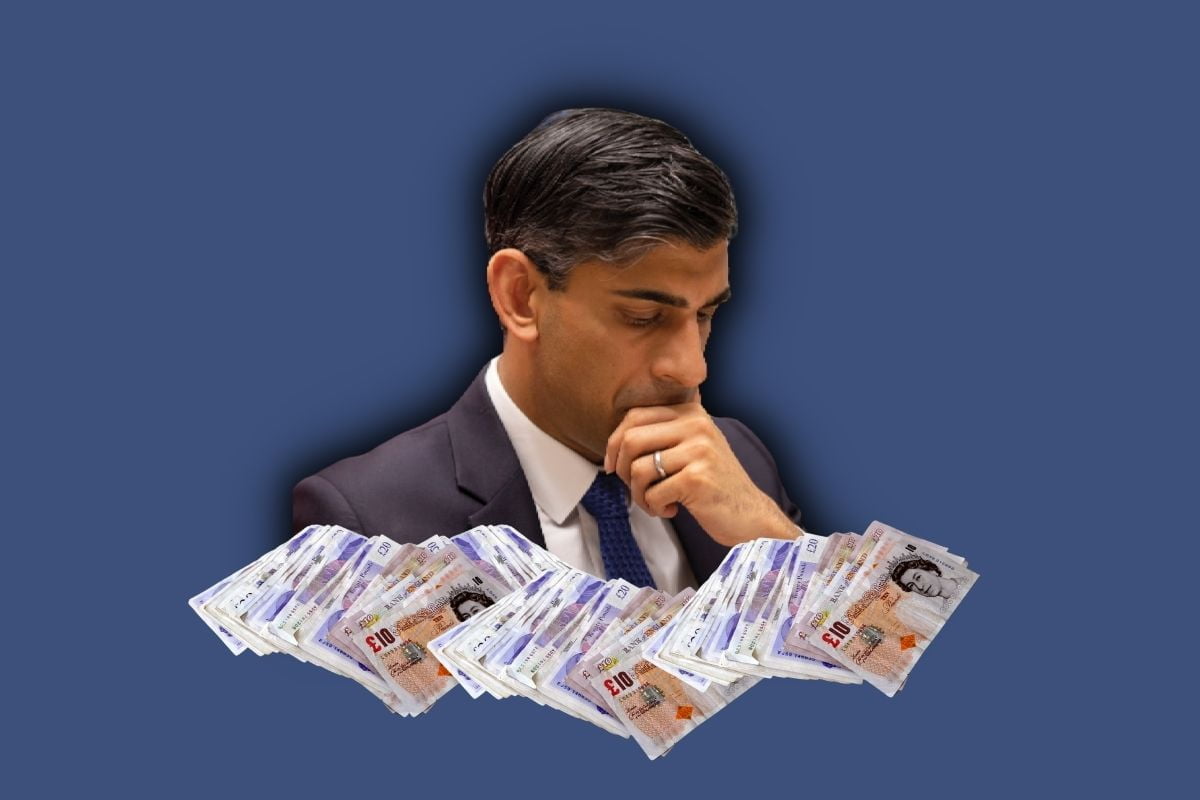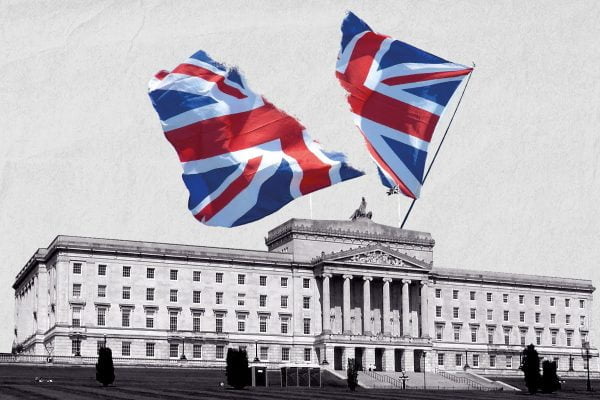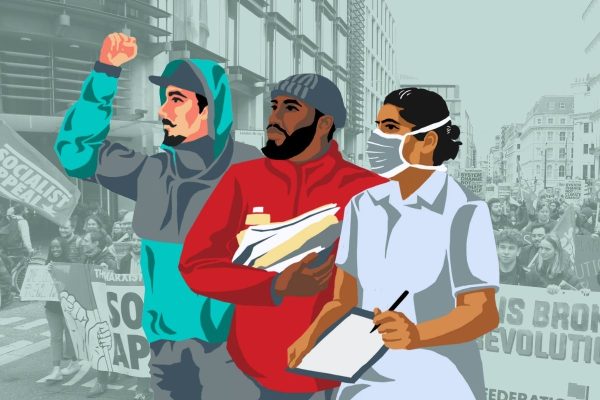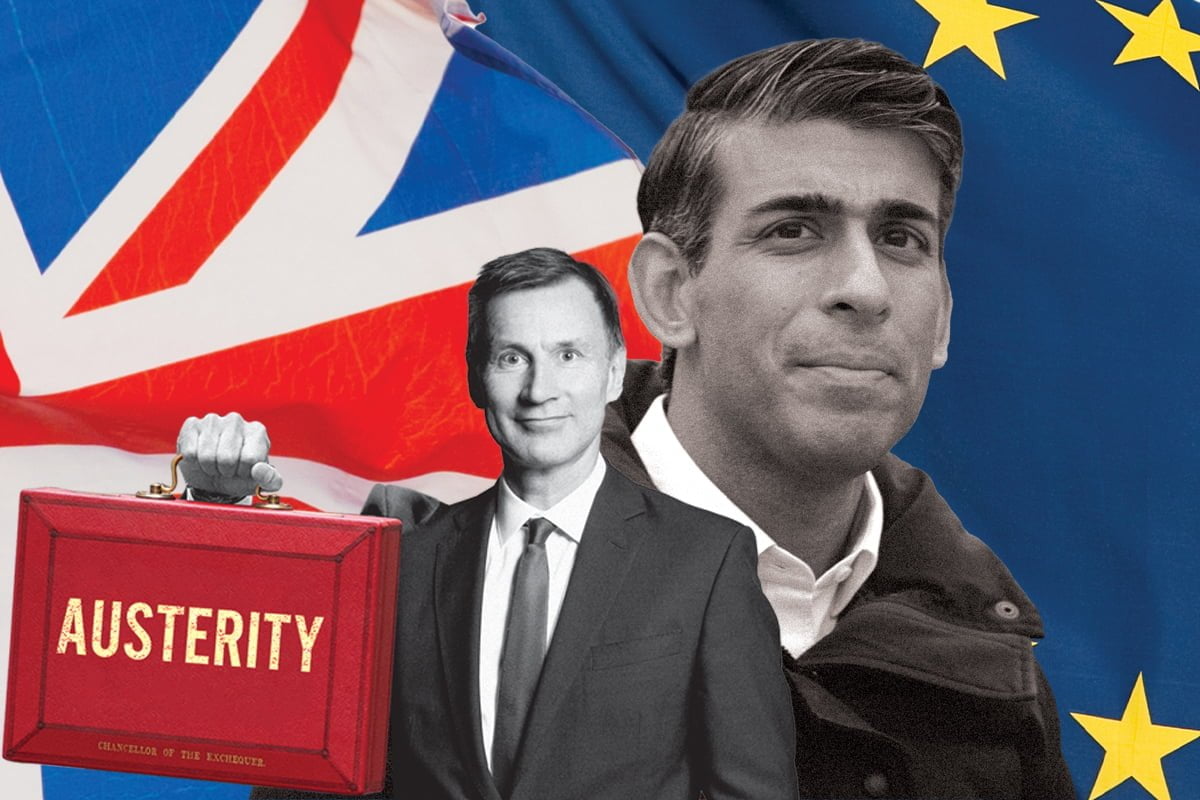Last month, on 27 February, following a ‘charm offensive’ aimed at European leaders, Prime Minister Rishi Sunak triumphantly proclaimed a new UK-EU agreement relating to trading relations in the North of Ireland.
The so-called ‘Windsor Framework’ amends the existing Northern Ireland Protocol. Trade barriers and borders in the Irish Sea are set to be eliminated (or so Sunak claims). A ‘green lane’ is to be established to help smooth the flow of goods from Great Britain destined for sale in the North of Ireland. And medicines, chilled meats, and pets will be able to move more freely between the two.
At the same time, the Northern Ireland Assembly will be given powers to slow down the implementation of new EU rules that would potentially apply to the territory – a mechanism dubbed the ‘Stormont brake’.
‘Breakthrough’ or break-up?

Speaking at a joint press conference to announce the deal, Rishi Sunak and Ursula von der Leyen, the President of the European Commission, hinted that this ‘breakthrough’ in negotiations could herald an era of warmer relations between Britain and Europe.
Without a hint of irony, Sunak hailed the North of Ireland’s “unbelievably special position…in having privileged access, not just to the UK home market, which is enormous, but also the European Union single market.” What a claim from a man who hailed the wonders of leaving the single market back in 2016!
Brexiteer Tories, meanwhile, were fairly mute in response to the renegotiated protocol. Headbangers in the notorious European Research Group of Conservative backbenchers remarked that they would be going through the proposals with a fine-tooth comb. But other influential Tory figures in the Brexit camp, such as Steve Baker and David Davis, struck a more supportive tone.
Similarly, tied down by renewed attention over his partygate shenanigans, Boris Johnson has failed to mobilise any serious rebellion against Sunak’s plans for the North of Ireland. With the Tories languishing in the polls, unruly MPs have been less inclined to mutiny of late, for fear of exacerbating the party’s slump.
Schrodinger’s trade deal
The establishment’s optimism could quickly evaporate, however. The PM’s deal may be good for sausages and sausage-dogs, but Unionists will not be so easily pleased.
DUP leader Sir Jeffrey Donaldson has stated that he and his party will be examining the details of the full legal text. In actual fact, they are nervously waiting to see which way the wind blows. And already, alarm bells are ringing over suggestions that the European Court of Justice will retain its influence and role regarding trade laws – a red rag to a bull for Unionists and Brexiteers alike.
Like Schrodinger’s infamous cat, the proposed changes attempt to square a circle by placing the North of Ireland in two regulatory states at once. But ultimately reality must assert itself. And sooner-or-later, a case will arise that forces politicians and judges to peer inside the box to ascertain the truth – no doubt revealing that the cat had in fact been dead all along.
Despite Sunak’s claims to the contrary, for example, the new agreement will continue to mean customs checks at the Irish Sea border.
Don’t count your chickens…

Above all, the DUP are feeling the heat back home. The Frankenstein’s monster of Loyalist sectarianism remains alive and kicking. There are already grumbles that the sea border remains. And the threat of violence from Unionist ultras hangs in the air like a volatile vapour, ready to ignite at any moment.
Donaldson and the rest of the DUP might be willing to sign up to the Windsor accord. But these ‘moderates’ are not fully in control. As one anonymous Tory source told journalists, behind “the men in suits” stand “the men with tattoos”.
Before the talks were even concluded, senior figures from the UVF (Ulster Volunteer Force) were warning that “the streets will be in flames”, and that they would “wreck the place” if their stubborn conditions weren’t met.
It therefore remains to be seen whether the DUP will be willing and able to return to Stormont, in order to end the Assembly’s longrunning paralysis. Above all, they fear being completely torn apart if they make a misstep.
Certainly neither Donaldson, Sunak, nor the rest of the British establishment will be counting their chickens just yet – despite all the hype and fanfare served up by them and the press for public consumption.
Hostile environment
Even the supposed rapprochement between Westminster and Brussels could soon come unstuck. The rabid ranks of the Tory Party still need feeding. And seeking some more red meat to sate their appetites, Sunak’s racist government has once again turned to bashing migrants.
Further ratcheting up the Tories’ ‘hostile environment’, home secretary Suella Braverman has boasted that the UK government will seek to push “the boundaries of international law”, with tougher restrictions on those arriving on Britain’s shores through “irregular” routes.
In plain speak, this means deporting asylum-seekers who – fleeing war, repression, and catastrophe – attempt to make the perilous journey across the English Channel in small boats.
But critics, such as refugee charities, have asserted that the proposals would be unworkable, and could potentially be in breach of the European convention on human rights. This would soon set the Tory government on a collision course with the EU once again.
Turmoil ahead

Above all, with the latest Budget Day approaching, on 15 March, and Britain’s strike wave continuing to grow, it is clear that there will be no respite for Sunak and the Tories.
Chancellor Jeremy Hunt is predicted to have few giveaways in his latest fiscal statement. Subsidies for energy bills might continue. And there is talk of public sector workers being offered a (below inflation) pay rise of 5%, in an effort to quell the rising tide of industrial militancy – made possible, apparently, by the Treasury magically stumbling across an extra £30 billion.
These offerings will be thin gruel for workers, however, coming after a year of rampant inflation and a decade-or-more of austerity and attacks. And there is no doubt that the main course served up by Hunt and co. will be billions more in cuts, slashing already-ravaged services to the bone.
Just as recession and turmoil lie ahead for British capitalism, so too will there be no recovery for the crisis-ridden Tories. In truth, Sunak is a lame-duck leader, presiding over a party of degenerates, a government of imbeciles, and a system in terminal decline.
It is time for the leaders of the labour movement to rally together, mobilise workers and youth, and sweep away these crooks and charlatans. We say: Unite the struggles to end austerity! Kick out all the Tories! Kick out capitalism!






